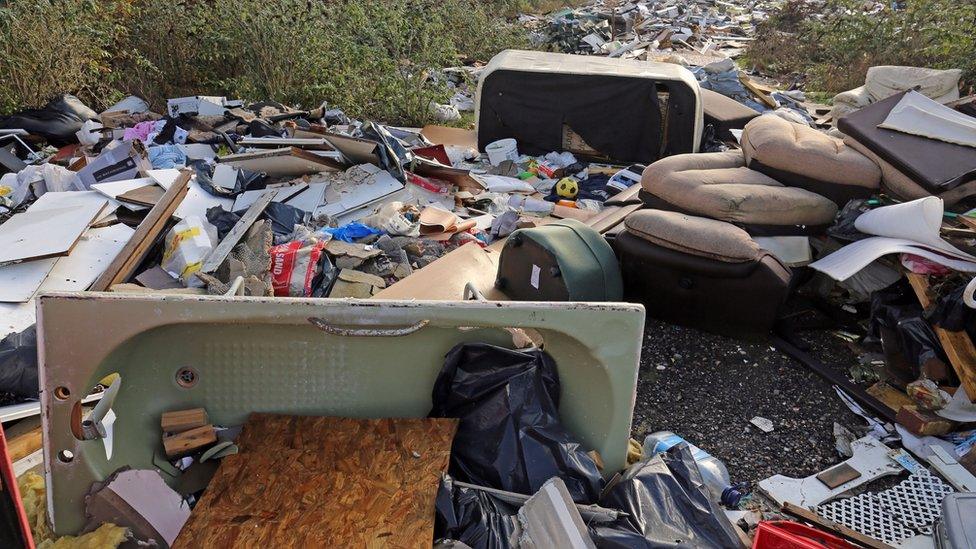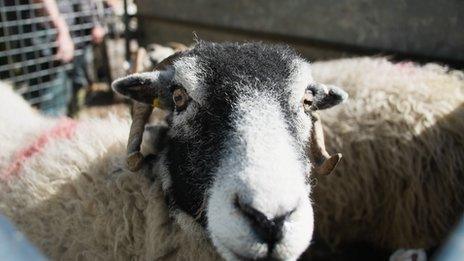Rural crime: Cost in England and Wales 'reaches more than £800m'
- Published
Cllr John Blackie: "When you need a policeman...we feel virtually abandoned".
Crime in rural parts of England and Wales cost more than £800m last year, a survey of 17,000 people suggests.
The National Rural Crime Network (NRCN) said its poll found the average cost to victims was £2,500 for rural households and £4,000 for businesses.
These crimes, which include theft of tractors and livestock, cost 21 times more than previous estimates, it said.
The Home Office said crime had fallen by 25% since 2010, with rural areas less likely to be affected than towns.
'Uncomfortable reading'
The NRCN, which was formed by police and crime commissioners to highlight crime in rural areas, said the estimated figure of £800m was based on the average cost of crimes reported in its survey, multiplied by the total number of crimes in rural areas reported from May 2014 to April 2015.
It also took into account the fact its survey suggested that 27% of crimes were not reported in rural areas.
The insurance company NFU Mutual had previously estimated the cost of rural crime in the UK to be £37.8m in 2014, external.
Julia Mulligan, chair of the NRCN and police and crime commissioner for North Yorkshire, said: "Some of the findings in this report make uncomfortable reading but it is vitally important for the reality of rural crime to be fully acknowledged and acted upon.
"Its actual scale is clearly much greater than we had previously known; £800m is a big number. The low satisfaction rates also need to be a wake-up call for police forces in rural areas and everything should be done to harness the opportunities presented."

Fly tipping is among the greatest concerns of the rural community, the survey suggested
The survey found 39% of people in rural areas rated the police as good or excellent compared with 63% across England and Wales.
It found the two greatest concerns to the rural community were road safety (63%) and fly-tipping (61%).
Among seven recommendations made, the NRCN said there needed to be a review of the funding formula for police resources in the countryside.
The NRCN said policing for sparsely populated areas was "relatively expensive on a per capita basis", which meant resources were under "even greater pressure".
In July the government announced it would launch a consultation, external on reforming the Police Allocation Formula, which uses data including population density to determine how much police forces receive.
The NRCN said that police, government and other authorities should work together better. It also called for police resources to be better targeted to "ensure the assessment of threat, risk and harm is as applicable to rural communities as urban".
A Home Office spokesman said police and crime commissioners (PCCs) have a "strong voice in determining how police resources are allocated to tackle the crimes that matter most to them".
They added: "This government welcomes the work the National Rural Crime Network is leading to ensure police forces respond to crime in rural areas with the same dedication as crime in urban areas. We trust reports like this will help PCCs hold their forces to account for the services they offer."
The Home Office highlighted the Crime Survey for England and Wales, external and the Commercial Victimisation Survey, external which both suggested crime rates in the countryside were lower than in urban areas.
- Published11 August 2014
